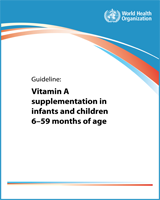According to the rules in the WHO Basic documents (30), all experts participating in WHO meetings must declare any interest relevant to the meeting prior to their participation. The conflicts of interest statements for all guideline group members were reviewed by the responsible technical officer and the relevant departments before finalization of the group composition and invitation to attend a guideline group meeting. All guideline group members and participants of the guideline development meetings submitted a Declaration of Interests Form along with their curriculum vitae before each meeting. In addition, they verbally declared potential conflicts of interest at the beginning of each meeting. The procedures for management of conflicts of interests strictly followed the WHO Guidelines for declaration of interests (WHO experts) (31). The potential conflicts of interest declared by members of the guideline group are summarized below.
Professor Michael Clarke declared being Director of the UK Cochrane Centre and a member of The Cochrane Collaboration. Professor Clarke was not personally involved in the preparation or management of the systematic reviews on vitamin A supplementation used for this guideline, although some of his colleagues were involved.
Dr Jean Humphrey declared that her research unit received research grants from 1996 to 2009 for the Zimbabwe Vitamin A for Mothers and Babies Project (ZVITAMBO) from various organizations, including the Nestlé Foundation, BASF, and the Pediatric AIDS Foundation, which receives its core funds from various organizations including Johnson & Johnson and the Abbott Fund. Sub-studies were also supported by Support for Analysis and Research in Africa (SARA) and Linkages Projects, both managed by the Academy for Educational Development (AED). To our knowledge, other than BASF, none of these companies nor their commercial sponsors directly or indirectly produce vitamin A supplements.
Dr Charles Stephensen declared receiving research funds from WHO for the conduct of a human study on the efficacy of newborn vitamin A supplementation in improving immune function and from the United States National Institutes of Health for the conduct of studies on vitamin A and immune function in mice.
Dr Sherry Tanumihardjo declared receiving remuneration as a technical consultant for the International Atomic Energy Agency (IAEA) and an honorarium from HarvestPlus. She also received research support from: HarvestPlus for a vitamin A efficacy study in Zambian children fed orange maize and for a banana study in gerbils to determine the vitamin A value of provitamin A carotenoids; the United States National Institutes of Health for developing a 13C retinol isotope dilution test; the United States Department of Agriculture (USDA) for the use of α-retinol as a chylomicron tag in rats and pigs; and WHO for mechanistic studies to understand neonatal vitamin A supplementation using the sow-piglet dyad model. In addition, she received reimbursement for travel expenses from IAEA, HarvestPlus and WHO to attend meetings. To our knowledge, neither HarvestPlus nor its commercial sponsors directly or indirectly produce vitamin A supplements.
External resource persons were invited to the meetings as observers and to provide technical input, but they did not participate in the decision-making processes.

